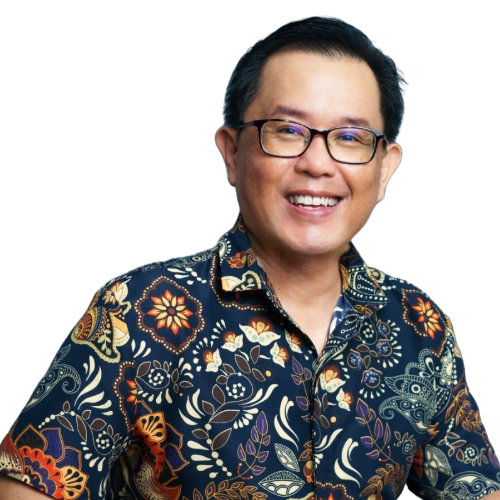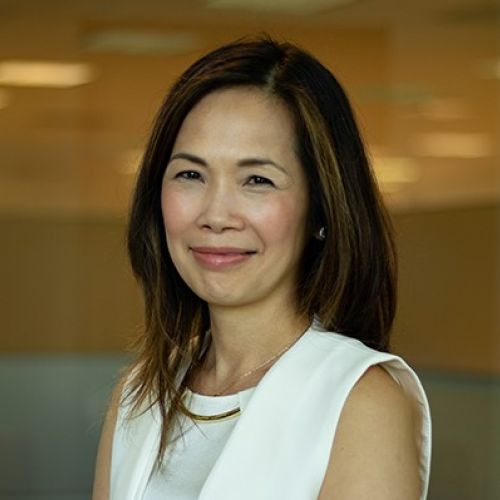Resilient Leadership and Business Sustainability Series Module 2: Risk & Change Management
- Innovation & Business Improvement
- Leadership & Management
To use your SkillsFuture Credit, please submit your claim through our payment portal. Do not submit the claim manually via the SkillsFuture page. Please refer to our step-by-step guide here.
2 Days
Who Should Attend
Leaders and mid-level management from SMEs; Start Up Founders and Entrepreneurs; Intrapreneurs; Business professionals who wish to drive change; Business professionals who want to develop resilient leadership and business sustainability.
Pre-requisites:
Minimally a Diploma
Overview
This immersive and experiential module is designed to help business owners and managers to navigate the future with a sustainability mindset. Participants will understand an integrated approach to managing risks, digitalization, and financial literacy to create sustainability in a rapidly changing, disruptive, and competitive economy. We don’t only need to manage down but also manage up and across, and this module can provide helpful tips and insights on how we can spread our influence and manage conflicts with a sustainable change model. Gain real understanding from accomplished leaders with diverse perspectives and life experiences about business sustainability.
Learning Objectives
At the end of the 2-day module, participants will be able to:
- Take bold risks through an integrated risk management analysis
- Identify new products and services that align with sustainability and digitalization
- Acquire techniques to aid financial understanding, analysis, and apply them in decision making.
- Understand the five key ingredients to produce a successful change process and implement a change model
Topic/Structure
Managing Risk is everyone’s responsibility
Every business face uncertainty and risk is everyone’s problem. It’s no secret: Entrepreneurship involves inherent risk. Yet, this is the most crucial time to work on reprogramming your brain to deal with uncertainty, so you can pivot, learn from your failure, and move toward success. An entrepreneurial mindset empowers you to take bold risks, use the IAM framework to understand risk management to accelerate change, and advance yourself, your team, and your organization.
Re-invent your offerings to align with sustainability and digitalization
Maintaining an entrepreneurial mindset enables you to assess your customers’ needs and develop new ways to create new products or adapt your current offerings. In any organization, a conscious effort is required to fight off stagnation. As markets shift and customers’ needs change, learning practices from entrepreneurs can help keep your business sustainable. Learn from Timbre Group how they re-examined the customer journey and created more sustainable offerings to keep business forward.
How to gain financial literacy to elevate decision making
As organizations and businesses become more global and increasingly disparate, professionals must have a firm grasp of finance to ensure that they maximize value. They are exploring the diverse financial challenges facing today's entrepreneurs. The topics to cover aim to give professionals who are not financial specialists an understanding of the financial consequences of strategic decisions and equip them with tools to integrate the financial approach into their decision-making. Learn how to communicate effectively with those in finance and accounting to ensure that your functions are better integrated, significantly boosting the firm’s overall value.
Practical Framework to make change work
We all aspire to drive change in our career or dynamic business environment, but a few of these change efforts have succeeded. Most of us don’t know how to go about it—learning from the pitfalls of why change efforts fail so you can identify ingredients and resources to help you to implement change in your role effectively.
Leading from the middle - Framework to influence across the organization
To navigate the magnitude of challenges from the pandemic, entrepreneurs are excellent at influencing all stakeholders; real examples from Danny on how he manages his communications with teams, tenants, landlords, musicians, suppliers, and shareholders to create mutual trust and alignment. Professionals can learn how to influence the middle space from these practical tips. As we report to those more senior in the hierarchy and direct or facilitate the work of those more junior, we exert various forms of Leadership that advance our organizations' careers.
How to create Productive Conflict
To manage differences and conflict, we will share how to identify real insight about the underlying issues and explore creative ideas to conduct these tough conversations. The role of power, whether we have high power or low power in a particular situation, creates power-conflict traps. Learn how to navigate these conflict landscapes with some practical framework and real experiences from industry leaders.
Assessment
There will be presentation or written assessments for each module.
Participants have to meet a minimum attendance rate of 75% and have to complete all assessment(s) required by the course. Only upon meeting the minimum attendance and passing the assessment will participants be issued a Certificate of Completion.
Participants who fail the assessment will be given a chance for re-assessment at a fee of SGD100.00 (excluding prevailing GST). Each participant is allowed 1 re-assessment. The re-assessment has to be taken within 7 calendar days from the end of the course date. It will be held on a weekday specified by SMU Academy and conducted during office hours. Please note that re-assessment fees are not supported by SSG Funding.
Participants who meet the minimum attendance rate but do not achieve a pass for the assessment will be issued a Certificate of Participation.
Participants are required to bring their laptop to access the course materials, class exercises and individual assessment(s).
Calculate Programme Fee
Fee Table
| EMPLOYER-SPONSORED | |||
|
PARTICIPANT PROFILE |
SELF-SPONSORED |
SME |
NON-SME |
|
Singapore Citizen < 40 years old Permanent Resident LTVP+
|
$654 (After SSG Funding 70%) |
$254 (After SSG Funding 70% |
$654 (After SSG Funding 70%) |
|
Singapore Citizen ≥ 40 years old |
$254 (After SSG Funding 70% |
$254 (After SSG Funding 70% |
$254 (After SSG Funding 70% |
|
International Participant |
$2,180 (No Funding) |
$2,180 (No Funding) |
$2,180 (No Funding) |
All prices include 9% GST
Please note that the programme fees are subject to change without prior notice.
Post Secondary Education Account (PSEA)
PSEA can be utilised for subsidised programmes eligible for SkillsFuture Credit support. Click here to find out more.
Self Sponsored
SkillsFuture Credit
Singapore Citizens aged 25 and above may use their SkillsFuture Credits to pay for the course fees. The credits may be used on top of existing course fee funding.
This is only applicable to self-sponsored participants. Application to utilise SkillsFuture Credits can be submitted when making payment for the course via the SMU Academy TMS Portal, and can only be made within 60 days of course start date.
Please click here for more information on the SkillsFuture Credit. For help in submitting an SFC claim, you may wish to refer to our step-by-step guide on claiming SkillsFuture Credits (Individual).Workfare Skills Support Scheme
From 1 July 2023, the Workfare Skills Support (WSS) scheme has been enhanced. Please click here for more details.
Employer Sponsored
Enhanced Training Support for SMEs (ETSS)
- Organisation must be registered or incorporated in Singapore
- Employment size of not more than 200 or with annual sales turnover of not more than $100 million
- Trainees must be hired in accordance with the Employment Act and fully sponsored by their employers for the course
- Trainees must be Singapore Citizens or Singapore Permanent Residents
- Trainees must not be a full-time national serviceman
- Trainees are eligible for ETSS funding only if their company's SME status is approved prior to the course commencement date. To verify your SME's status, please click here.
Please click here for more information on ETSS.
Absentee Payroll
Employers who sponsor their employees for the course may apply for Absentee Payroll here. For more information, please refer to:
AP Guide (Non-SME Companies)
Declaration Guide (SME Companies)
Loading schedule information...
*Registration will close 5 calendar days before the course start date, or once the class is full, whichever comes first.
Additional Details
Programme Registration
Applications will be reviewed by our Programme Admissions Committee. The decision made by the committee is final and no request to review the decision or reveal the considerations leading to the decision would be entertained.
Certified Professional Business Manager (CPBM)
This programme is part of Certified Professional Business Manager. Participants who successfully complete 6 courses/modules with a minimum of 15 training days, from a list of qualifying programmes (terms and conditions apply) within 5 years will receive the Certified Professional Business Manager (CPBM). For example:

Please click here for CPBM details and list of qualifying programmes.





